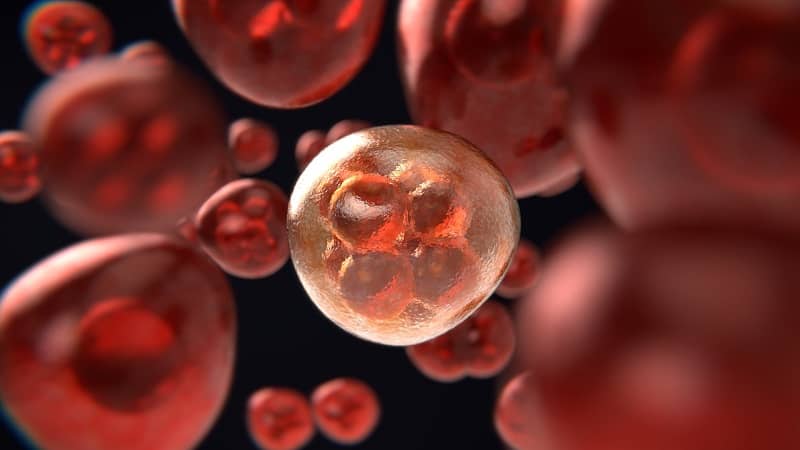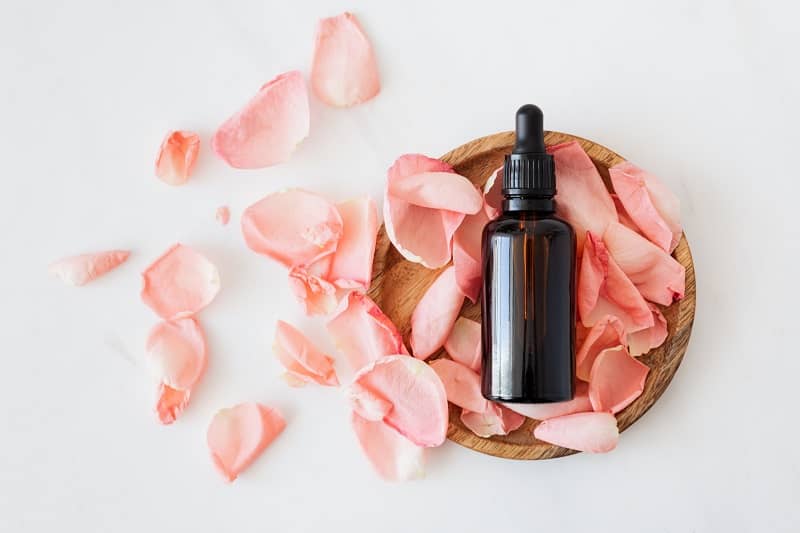
05 Jan Do Growth Factors in Skin Care Work and Are They Safe?
Are growth factors in skin care safe?
Ahh, a million-dollar question.
This question is not new. It has been in trend since the 1990s when the first commercial skin product with growth factors came into existence.
Undoubtedly, the discovery of growth factors is a boon to human physiology and medicine.
Therefore, Stanley Cohen along with Rita Levi-Montalcini was awarded the Nobel Prize in Physiology or Medicine in 1986 for the discovery of growth factors.
Growth factors are the chemical transmitters that send signals to cells, stimulating actions such as growth, differentiation, proliferation, and healing.
They act as a communication handle to inform cells to move through the cell cycle, divide, and grow.
Well, skincare products with growth factors have been making headlines lately, and so are the controversies surrounding them. Are they really safe to use for skin rejuvenation?
This Q&A encapsulates everything you need to know about growth factors in skincare and their safety.
#1. Where Do Growth Factors Come from?
Even your wildest guess can’t come near the fact that the growth factor was first observed in newborn mice injected with a crude extract from the salivary gland of a mouse. Further, the growth factor was discovered in embryonic development.
From discovery to bioengineering growth factors in the laboratory, biotechnology has made a big stride!
Advances in biotechnology have developed a vast number of sources of growth factors.
Growth factors come from several different human cells grown via tissue culture in the laboratory, such as skin cells, bone marrow stem cells, fat stem cells, etc. extracted from one’s own blood Platelet Rich Plasma.
However, growth factors can also be derived from non-human sources like snails and some plants.
All cells can produce growth factors. But the growth factor tends to be ideal for the health of the cells out of which they are produced.
For instance, fat stem cells produce growth factors that ideally help the functioning of fat cells.
Whereas, the bone marrow stem cells are likely to produce growth factors that help with the functioning of bone marrow.
Now, let’s get more into why we need growth factors and are growth factors in skin care safe.
#2. Why Do We Need Growth Factors in Skin Products?
Many times people get prone to early-life aging skin, and wrinkles, and start losing the tone and texture of the skin.
This tends to target the self-confidence of people which further results in psychological problems.
So, skin products rich in growth factors can be used as a part of your skin regimen.
Topical Growth Factors for Skin Rejuvenation have been viable in safely and effectively stimulating the body’s natural process to repair aged and damaged skin. Plus, they improve the elasticity of the skin, reduce wrinkles, acne, and increase skin thickness.
Obviously, these biological actions owing to growth factors result in healthier skin and a youthful appearance.
#3. Is Growth Factor Good for Skin?

In the world of cosmeceutical skincare, it is necessary to know the clinical viability of each and every product.
Even a minute of irresponsible behavior in the case of the skin can cause extreme conditions like burns, infections, and inflammation.
So, are growth factors in skin care safe? This is a most asked question by every individual considering a topical growth factor application.
There are no specific cons established with the usage of growth factor-rich skin products. Medical Professionals consider growth factor products as the icing on the cake to maximize the skincare regimen.
Further, it’s strongly stated by many of the researchers that it is essential to work in the field to establish and spot the difference between the different sources of growth factors.
Studies should be conducted to compare the efficacy of naturally secreted (but not entirely identifiable) human growth-factor blends, to specific growth factors harvested from other sources (plants, animals, bacteria), and to synthetic growth factors engineered in the lab.
However, there’s little established scientific evidence to not give a nod to growth factors. So the answer to ‘Are growth factors in skin care safe?’ is predominantly yes given the large molecular size.
#4. Can Growth Factors Cause Cancer?
Well, a lot remains unknown when it comes to the absolute safety of growth factors. There are concerns over its long-term daily use as we tend to apply skincare products readily for long periods of time.
Moreover, growth factors do stimulate cell multiplication. Currently, most of the research on growth factors concerns wound healing.
Thus, there’s still room for more research if we are to certainly answer the question, are growth factors in skincare safe, especially pertaining to any cancer risk?
It is also not yet certain if growth factors used in products remain stable and get absorbed properly.
Having said that, clinical studies do show growth factors reduce wrinkles and fine lines while it also evens out pigmentation.
Research suggests growth factors tend to influence normal cell differentiation and consequent consecutive activation of growth-promoting pathways in cancer cells.
Further, this can also modulate the cell phenotype as well.
Research by Physicians Health Study found that high levels of a well-known growth factor significantly increase the risks of colorectal, breast, and prostate cancer.
However, no such research has been done on topical growth factor products. But if we talk of growth factors, there have been some shreds of evidence to foster that growth factors can cause cancer.
Further reading on this subject: Roles for Growth Factors in Cancer Progression
#5. Can Growth Factors Affect Cell Division?

YES!!
That’s the whole idea, actually.
Each growth factor possesses a specific cell receptor that acts as a chemical neurotransmitter and sends signals to the brain and guides the cell cycle to divide and grow.
Growth factors initiate all signaling pathways and mediate the communication between cells in all developing organs.
A few of the growth factors evidently impact the process of tissue remodeling.
The growth factors including TGF-β, and IL-1β act mainly at a local site in association with the matrix helping explain the progressive and tissue-restricted nature of remodeling.
Growth factors not only stimulate cell division but also mediates other cellular processes, such as the synthesis and secretion of collagen, fibronectin, and other proteins.
Solely, cell division, repairing, and even wound healing depend on the growth factor.
#6. Do Growth Factor Serums Work?
You might be wondering do these growth factors serums work.
Yes, they do.
Growth factors are enough to bring cellular actions on the floor and push them to dance to fetch enhanced skin for you!
Some researches and studies prove the effectiveness of the growth factor in skin care and other products.
However, including growth factors not only improves skin health but is also beneficial in treating skin wounds without any adverse side effects. Here’s what published clinical research has to say.
A systematic review and meta-analysis are performed to evaluate the effectiveness and safety of the growth factors in acute skin wounds. For this, a total of 7573 papers were identified through database searching. Out of which, 229 papers including 281 studies were kept after final screening.
The analysis suggests that the growth factor administration significantly shortens the time of healing duration of acute skin wounds and this includes superficial burn injuries.
This clearly states the fact that growth factor increases the healing rate of acute skin wounds and decreases the scars without any adversities.
Now, because the growth factor accelerates the cell growth, it becomes easier to heal the damaged skin. However, the same process is a question of concern for those who believe growth factors in skin can cause cancer.
The research on the impact of topical application of skin factors paced since the 2000s. Many dermatologists are of the opinion that due to the larger molecular size, growth factors do not enter the epidermis.
Moreover, there are enough studies and evidence to showcase that topical growth factors stimulate biochemical pathways that regulate cellular growth.
Proliferation and differentiation play the protagonist in maintaining healthy skin structure and function.
However, various clinical studies and researches including the Journal of Drugs in Dermatology claim that in spite of having a large molecular weight and size, a small fraction of topically applied skin products rich in growth factors penetrate into the superficial epidermis.
Further, these penetrated growth factors can elicit a fibroblast-mediated response in the dermis. Thereby, acting as a stimulant and pushing the skin around them into action.
Even a minimal penetration amplifies the communication channels between the dermis and epidermis which ultimately sparks collagen production.
Let’s know What are Growth Factors in Skin Care and Epidermal Growth Factor serum?
Each growth factor targets a special function which enlists as:
1. Epidermal Growth Factor (EGF)
It activates intracellular signaling and stimulates the proliferation of different types of cells, especially fibroblasts and epithelial cells.
2. Fibroblast growth factor (FGF1)
FGF1 stimulates cellular regeneration and plays a role in the repair and remodeling of the skin dermis during the skin anti-aging process.
3. Hepatocyte growth factor (HGF)
It boosts collagen and maintains skin strength, elasticity, and ensures less visibility of wrinkles.
4. Interleukins-10, -13, -15
They boost the healing and regeneration of skin and soothe inflammation too.
5. Keratinocyte growth factor 1
It stimulates epithelial cell growth and ensures a better and enhanced tone of the skin.
6. Platelet-derived growth factor
Platelet-derived growth factor facilitates cell growth and division, which ensures fast healing and skin repair.
7. Transforming growth factor-beta (TGF-ßI)
It stimulates collagen production, which gives the skin its softness and suppleness and speeds up wound healing.
These are the Examples of Growth Factors in Skin Care. These ensure better skin through a cosmeceutical approach.
#7. Can Growth Factors be Used with Retinol?
Retinol is the gold standard in anti-aging and Vitamin A derivative that lessens the visibility of fine lines and wrinkles.
Plus, it promotes collagen production to give skin a better tone and resurfaces the skin by minimizing breakouts.
For more severe and serious skin concerns other than aging and wrinkles, Retinol (Vitamin A) may be coupled with the growth factors. This provides a better collaborative effect than the growth factor alone.
If you add any other aging products and antioxidants to the topical growth factor, you will witness a boost in the results.
#8. Do I Really Need a Growth Factor Serum?

Growth factor serums have an edge over other cosmetic products as they are great for addressing skin laxity.
Not only do they address aging issues but also:
- Pair well with other cosmetic products
- Great for every skin type including sensitive skin
- A natural formula that addresses many concerns at a time
- Boosts skin cell growth
- Reduces the appearance of fine lines
- Improves the elasticity of the skin
- Successfully repairs damaged skin
So, a skin enriched with growth factors helps you battle many skin and cellular problems. It primarily affects the processes associated with cell division and cell regeneration.
In a world of cosmeceutical skincare products, it’s better to go with skincare products enriched with skin growth factors. But one should take some precautions before considering topical skin application.
Sometimes, it may happen that coupling products with Vitamin C, Retinol, or Folic acid result in some drastic effects on the sensitive skin.
In the case stated, one must consult a dermatologist.
Self-evaluation is a complete no-no.
The Takeaway
Skin is one of the most important parts of the body and when it comes to facial skin, it becomes more vital as it is linked with appearance. And appearance links self-confidence, and boldness in an individual.
Hence, it’s natural to seek out products to enhance external beauty and, even more so, put a stopper to the aging clock.
However, are growth factors in skin care safe? Well, growth factors still need a lot of research to confirm their safety over other anti-aging treatments.
Given that, it’s safe when the molecular size is big enough to not penetrate the skin. Moreover, we’re yet to see any serious complaints from the users of these growth factor serums.
In one sentence, go for a research-backed formula that’s made keeping your specific skin sensitivities in mind.
READ NEXT:
Stress Management Guide: Proven Strategies to Relieve Symptoms



Elis
Posted at 11:25h, 12 SeptemberVery useful information about growth factors use in skin care. I was wondering if I could go for a serum or cream. This helped a lot. Thanks!